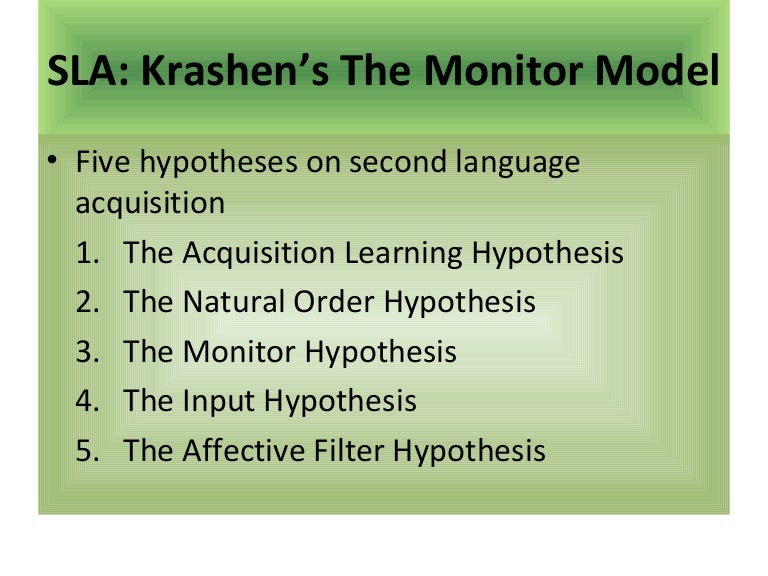The Acquisition-Learning distinction is the most fundamental of all the hypotheses in Krashen's theory and the most widely known among linguists and language practitioners. According to Krashen there are two independent systems of second language performance: 'the acquired system' and 'the learned system'. The 'acquired system' or 'acquisition' is the product of a subconscious process very similar to the process children undergo when they acquire their first language. It requires meaningful interaction in the target language - natural communication - in which speakers are concentrated not in the form of their utterances, but in the communicative act.
The "learned system" or "learning" is the product of formal instruction and it comprises a conscious process which results in conscious knowledge 'about' the language, for example knowledge of grammar rules. According to Krashen 'learning' is less important than 'acquisition'. (See here our in-depth analysis of the Acquisition/Learning hypothesis and its implications).

